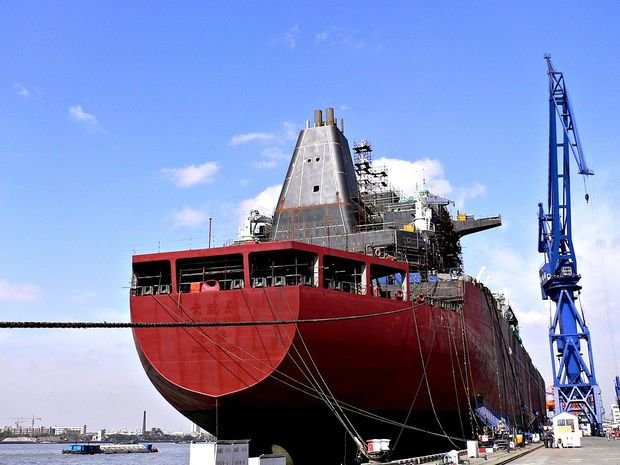Why China investing in Russian Arctic?
Sino-Russian relations gain strength day by day: the two countries cooperate in economic and industrial projects. Chinese investment has become a magic wand for Russia in the context of Western sanctions. The ambitious Yamal LNG project involves almost 30% of Chinese money. For China, it is an opportunity to promote both its geopolitical and economic interests.
According to The Diplomat, we will probably see more involvement of Chinese companies in various projects in the Arctic in the near future. Currently, the country is actively participating in the Yamal LNG project, a joint venture between Russian Novatek (50,1%), French Total (20%), China National Petroleum Corp. (20%), and the Chinese Silk Road Fund (9,9%). Chinese banks issued loans in the amount of over €10bn to support the project. The production at the first production line of the plant located above the Arctic circle was successfully launched in December 2017.
For Russia, the launch is doubly important. First, it makes the country one of LNG global players alongside Qatar, Australia and the United States. Besides, the project's successful launch allows Russia to demonstrate the world that the country can successfully replace Western lenders and find other financial and technological resources to accomplish its goals.
As for China, its interests in the Russian Arctic are more complex. The Diplomat names several reasons for China to support the LNG project. The country's particular interest in LNG can be explained as it allows Beijing to avoid pipeline construction and to diversify energy suppliers. China's demand for natural gas will increase almost twofold by 2030, and its domestic production can cover only 50% of the demand. After the full launch of the Yamal plant China will receive an annual supply of 3,5 million tonnes of LNG.
Chinese companies also provide technical support of the project, such as manufacturing gas liquifying modules. The experience and knowledge of gas production in harsh climatic conditions makes China more influential in the global energy market.
Besides, the plant is the first Arctic energy project within China's Belt and Road Initiative (BRI) proposed and actively promoted by President Xi Jinping. The BRI is aimed at strengthening regional economic collaboration among China's partner states as well as the nation's growing role in global affairs. The Russian Northern Sea Route (NSR) is an essential part of the BRI: from 5% to 15% of China's international trade is expected via the maritime corridor by 2020. China Ocean Shipping Company (COSCO) has already been using the route since 2013.

However, China's commercial navigation through the NSR depends on Russia's official policy on development of the Arctic route. According to recent amendments to Russia's Merchant Shipping Code, vessels navigating under the Russian flag and carrying locally produced natural gas, oil and coal have exclusive rights to use the NSR. At the same time, Moscow is particularly interested in Chinese investment into the Russian port infrastructure along the Arctic route. So, it remains unclear if Chinese companies' future role will be limited to investment only or their involvement will be expanded based on some concessions.
Overall, Beijing's participation in the Yamal LNG project corresponds to the country's interests both on the international and domestic levels. Furthermore, mutual interest in further economic cooperation expressed by Russia and China means more future involvement of Chinese companies in various projects in the region.